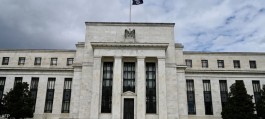US retail sales growth likely moderated slightly in September, ending a strong quarter of consumer spending, as consumers appeared to be growing frustrated with rising prices and worried about their job security.
Economists expect sales to rise 0.4%, following a 0.6% increase the previous month, according to the median estimate in a Bloomberg survey. The data, delayed by more than a month due to the government shutdown, is scheduled to be released by the Census Bureau on Tuesday.
Resilience of consumer demand
Consumer demand proved resilient over the summer, likely helping to bolster the economic growth acceleration in the third quarter. At the same time, however, the risk of a decline in consumer spending looms as many employers reduce their hiring pace.
Furthermore, spending on non-essential goods is primarily driven by high-income shoppers who benefit from stock market gains throughout the year. Those with lower incomes, on the other hand, are significantly impacted by the rising cost of many basic necessities.
The latest University of Michigan data shows that consumers have the most pessimistic views about their personal financial situation since 2009, and see the likelihood of losing their jobs at its highest level in five years.
In the retail sector, companies like Walmart and Gap reported strong sales last quarter and success in attracting high-income shoppers. However, Home Depot warned that many consumers are postponing renovation projects and major purchases.
Expected US data
Key US data releases due next week include the Producer Price Index and durable goods orders for September, as well as weekly jobless claims. These reports come ahead of the Thanksgiving holiday on Thursday and Black Friday, the biggest retail day of the year.
Meanwhile, the Federal Reserve’s latest Beige Book report, due on Wednesday and covering October and early November, is likely to highlight weakness in employment and activity.
Bloomberg Economics experts' opinion:
The labor market bottomed out over the summer and then gradually improved until the government shutdown, which led to some renewed weakness in spending and hiring. Companies are largely looking for ways to cut costs by adopting technology and reducing staff. Overall, we believe the Fed can—and perhaps should—cut interest rates in December to sustain the fragile recovery that began over the summer.
Anna Wong, Stuart Ball, Eliza Winger, Estelle Oh, Chris G. Collins, Troy Dory and Alex Tanzi, economists.






































